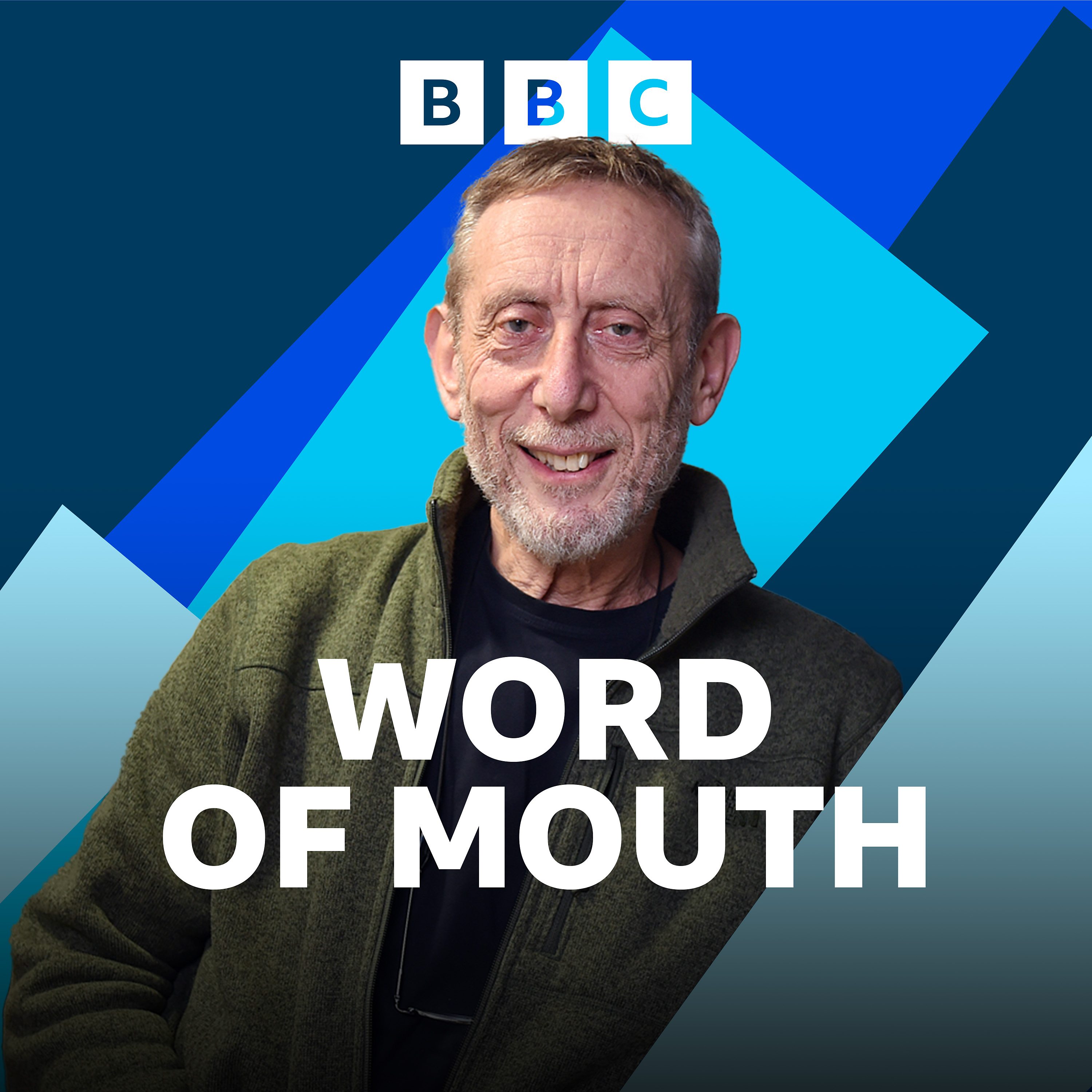

Word of Mouth
BBC Radio 4
Series exploring the world of words and the ways in which we use them
Episodes
Mentioned books

Apr 18, 2017 • 27min
How Countries Got Their Names
Michael Rosen and Dr Laura Wright find out how countries - including this one - got their names, and what they mean. Why isn't Greenland green? How is Venezuela like a Little Venice? And what's the only state in the world named after a woman? With Professor Richard Coates.
Producer Beth O'Dea.

Apr 11, 2017 • 27min
Frenchified: The Influence of French on English
Michael Rosen & Dr Laura Wright find out how much of our language comes from French roots, from Anglo-Norman onwards. A Sunday lunch menu from The Ritz is food for thought, and Dr Richard Ashdowne explains the surprising history behind many words we think of as English, with the help of Buffy the Vampire Slayer.
Producer Beth O'Dea.

Feb 28, 2017 • 28min
Like, Totally Awesome: The Americanisation of English
Michael Rosen is joined by writer Matthew Engel and linguist Dr Lynne Murphy to discuss the Americanisation of English. Is the pace of Americanisation of British English really increasing? Why do Americans say eggplant and sidewalk, rather than aubergine and pavement? Why does your spellchecker insist it's 'color' not 'colour'? Do Americans complain about the 'Britishisms' creeping into use in the States as much as we complain about Americanisms in use in the UK? Does it really matter if British and American English begin to be used interchangeably and could we stem the flow if we tried? Producer: Mair Bosworth.

Feb 21, 2017 • 28min
Emoji: The Future of Language?
Is emoji really the world's fastest growing language? (And can it really be said to be a language at all?) Who gets to decide which pictograms get added to the official set of emoji? Do they clarify the meaning of written language or are they dangerously open to misinterpretation? And why did the aubergine emoji get banned from some social media platforms? Michael Rosen and Dr Laura Wright are joined by Professor Vyv Evans to talk all things emoji. Producer: Mair Bosworth.

Feb 14, 2017 • 28min
Intonation: The Music of Speaking
Michael Rosen and Laura Wright explore the tunes we sing when we are speaking - without even realising it. Sound artist John Wynne extracts the melodies to play in the studio and Sam Hellmuth explains what we use intonation for.
Producer Beth O'Dea.

Feb 7, 2017 • 28min
Pet or Pest? The revealing words we use about animals, and dog names
Michael Rosen and Laura Wright on the language we use to talk about animals - and the names we give our dogs. Do the words used show changing attitudes? They're joined by Professor Alison Sealey, linguist at Lancaster University and co-investigator on a new study: People, Products, Pests and Pets: The Discursive Representation of Animals.
Producer Beth O'Dea.

Jan 31, 2017 • 27min
Words Roadshow in Birmingham
Michael Rosen and linguist Esther Asprey answer questions about interesting local and family words from listeners at a Words Roadshow at the Birmingham Literature Festival. What's a gubbins? What is your dander, when it's up? And what could it be that you're doing if you do a flink-a-flonk...
Recorded at BBC Birmingham.
Producer Beth O'Dea.

Oct 18, 2016 • 28min
Susie Dent on Language
Michael Rosen and Laura Wright talk to Susie Dent, lexicographer and word lover known for her expert contribution to Countdown and 8 Out of 10 Cats Does Countdown. She has been uncovering the secret language tribes of Britain: the words used only between themselves by groups like publicans, binmen and builders..what on earth is "disco rice"?
Producer Beth O'Dea.

Oct 11, 2016 • 28min
Reading: The Science and the Pleasure
As part of the BBC LovetoRead campaign, Michael Rosen talks about his first experience in reading, with Dr Laura Wright, and how and what he reads now. They're joined by cognitive psychologist Professor Kathy Rastle to explain the amazing process by which we read, and to find out how fast the average reader reads, and how many words they know..
Producer Beth O'Dea.

Oct 4, 2016 • 28min
Snotrils and Jumpolines: Kids' Invented Words
Michael Rosen and Dr Laura Wright explore the words that children invent and reimagine, from snotrils and jumpolines, to Farmer Christmas and the hippyhoppymus. What do these linguistic leaps of imagination tell us about how children learn language? With writer Nicola Skinner and linguist Dr Kriszta Szendroi, who explains what's going on in the brain when children reach for the right word. Producer: Mair BosworthThe research study on 'logs-key' referred to in this program is the work of Jesse Snedeker (Harvard University) and Yi Ting Huang (University of North Carolina).


